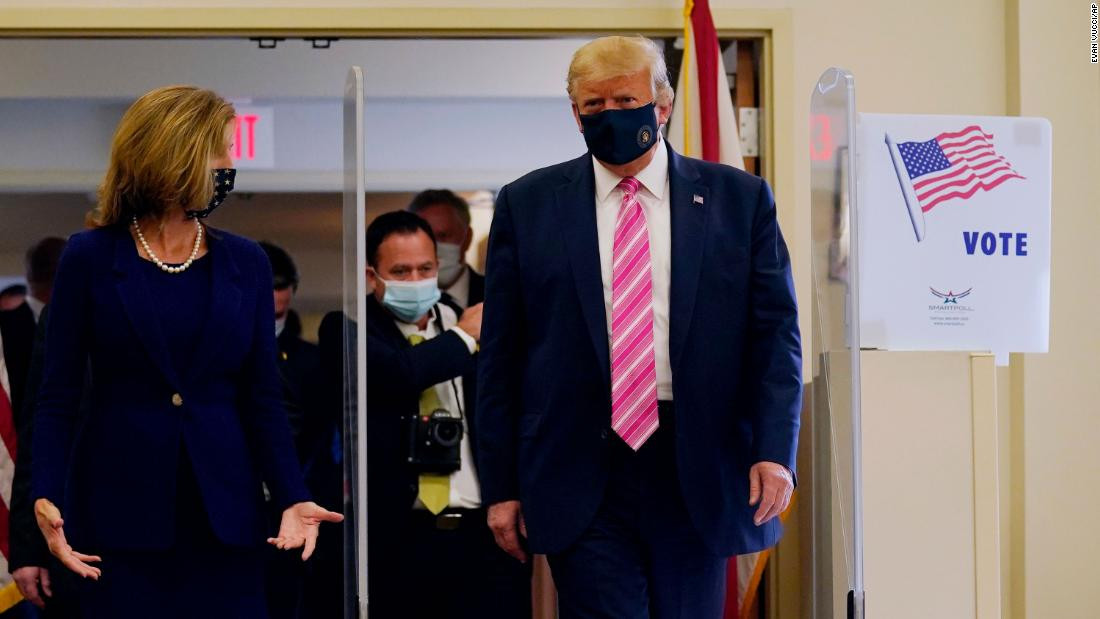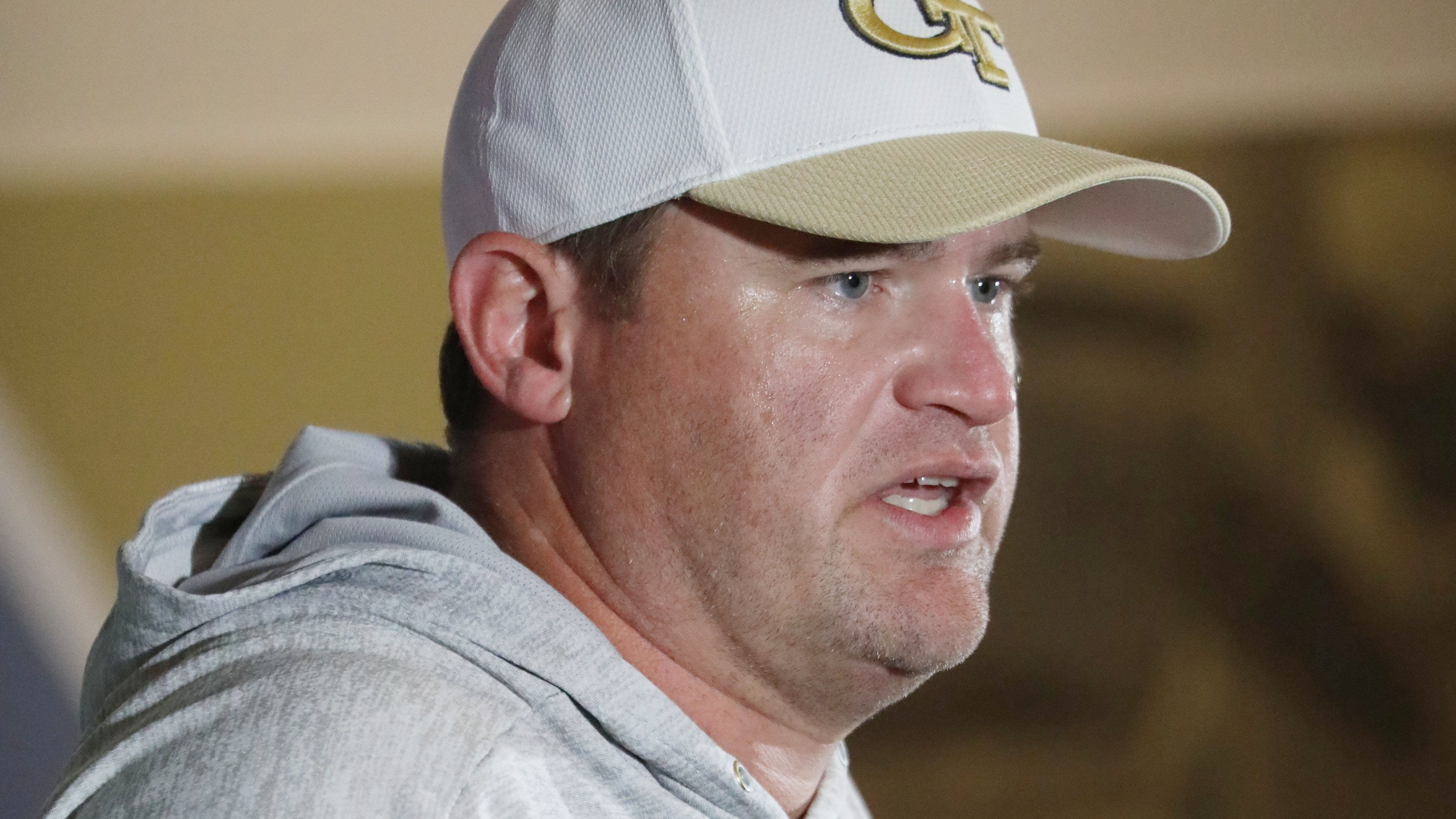While Florida generally makes it challenging for people in the state with felony convictions to regain their voting rights, former President Donald Trump had no issue casting a ballot for himself Tuesday in Palm Beach. Trump was convicted in Manhattan earlier this year of 34 counts of falsifying business records tied to hush money payments before the 2016 election to adult film star Stormy Daniels. The first former US president convicted of a felony, Trump is scheduled to be sentenced on November 26.
Under Florida law, if a voter has an out-of-state conviction, Florida will defer to that state’s laws for how a felon can regain his or her voting rights. For Trump, that means he will benefit from a 2021 New York law that allows people with felony convictions to vote as long as they’re not serving a term of incarceration at the time of the election. For other Floridians with felony convictions, the rules are not so simple.
“Florida is really behind in terms of its laws,” said Blair Bowie, director of the Campaign Legal Center’s Restore Your Vote project, which is focused on ending felony disenfranchisement. A successful 2018 ballot initiative restoring voting rights to those who had completed the terms of their sentence was gutted by state Republican lawmakers. They passed a law requiring that all the fines and fees associated with a conviction are paid – a process that can be cumbersome, as there is not a centralized system for tracking such outstanding fees.
The Republican measure adding the requirement that all fines and fees be paid was challenged in court, but a conservative appeals court ultimately upheld the law. Still, the litigation exposed how records of those outstanding debts are kept at the county level and are often incomplete. But that bureaucratic morass is not something Trump must contend with, because he was convicted in New York.
“Bottom line is, it should be this easy for everyone, not just Trump,” Bowie said.
Voting Rights for Felons: A Growing Trend
Voting rights access has been quietly, steadily expanding for one particular population in recent years: those with felony convictions. Now, that population includes one of the two major party candidates: former President Donald Trump.
For much of American history, a felony conviction came with lifetime disenfranchisement (among other rights taken away and never returned). If you refused to follow society’s laws, the logic went, you should lose the freedoms that come with it. That included voting.
Over the past three decades, however, 26 states and Washington, D.C. have passed laws enabling people with felony convictions to regain the right to vote. In most cases, voting rights are restored automatically once an individual has served their sentence. In others, the person must also complete probation and parole, as well as pay any fines or restitution attached to their sentence.
Although he is a convicted felon, former President Donald Trump was able to cast a vote in Florida. The reason has to do with a growing move by states to expand voting rights to people with felony convictions.
Mr. Trump cast a ballot for himself in Palm Beach today thanks to recent developments in these laws. Per Florida statute, if a voter has a felony conviction from another state, Florida will defer to that state’s laws in determining if the voter can or can’t vote. And in 2021, New York passed a law allowing people with felony convictions to vote as long as they’re not incarcerated at the time of the election.
Mr. Trump, whom a Manhattan jury found guilty on 34 felony counts of falsifying business records earlier this year, is scheduled to be sentenced on Nov. 26. Originally scheduled for early September, the judge in the case postponed his sentencing until after the election.
The Impact of Re-enfranchisement Laws
Overall, since 1997, over 2 million Americans with felony convictions have regained the right to vote, according to the Sentencing Project. These re-enfranchisement laws have been crucial to helping people with felony convictions successfully rejoin society after serving their time, researchers say. In Minnesota, a study found that people with past felony convictions who voted in the 1996 election were only half as likely to be rearrested from 1997 to 2000 as those who didn’t vote. In a 2012 survey of disenfranchised citizens in Florida, almost 4 in 10 “directly connected their inability to vote to their perceived ability to remain law-abiding.”
Obstacles and Resistance Remain
Skepticism of restoring voting rights for people with felony convictions remains, however. In Nebraska this year, two Republican officials refused to enforce two state laws – including one passed in 2005 – expanding voting rights for felony convictions. It meant people like Thomas Moore, who served nine years in prison in Florida before moving states, voted in the primary before fearing it may be illegal for him to vote in the general election. The Nebraska Supreme Court ultimately ordered the state officials to enforce the new voting laws, but it was an episode that rankled Dr. Moore, co-owner of a mental health agency in Florida and teacher at a community college in Lincoln, Nebraska.
Voting for the first time after earning his freedom “was extremely inspiring, extremely empowering,” Dr. Moore told the Monitor in July. “I just felt a feeling of: it’s a new season,” he added, “I can now reintegrate and live by the laws of the land and find success just like everyone else.”
Trump's Vote: A Case Study
Trump's ability to vote in Florida highlights the complex and often contradictory nature of voting rights for felons across the United States. While some states have moved toward greater inclusivity, others continue to impose significant barriers. The situation in Florida, where Trump is permitted to vote because his conviction originated in New York, underscores the patchwork nature of these laws. This raises questions about fairness and consistency in the application of voting rights for felons, particularly in a country where voting is considered a fundamental right. As the debate over felony disenfranchisement continues, Trump's case provides a timely reminder of the challenges and inconsistencies that persist in ensuring equal access to the ballot box for all citizens.
Looking Ahead
While Trump's ability to vote in Florida might seem like an anomaly, it is a reflection of the changing landscape of voting rights for felons. As more states move towards restoring voting rights, the question remains whether this trend will continue and ultimately lead to a more equitable system across the country. Regardless of the outcome, Trump's case has brought the issue of voting rights for felons to the forefront of the national conversation, prompting further examination of these laws and their implications for a more just and inclusive democracy.

















